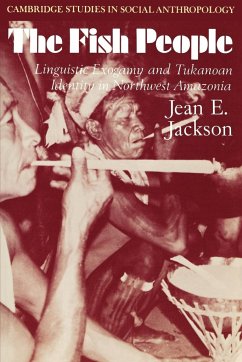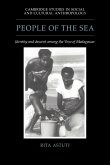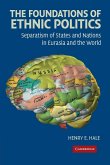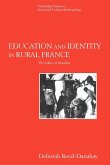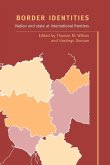The Bará, or Fish People, of the Northwest Amazon form part of an unusual network of intermarrying local communities scattered along the rivers of this region. Each community belongs to one of sixteen different groups that speak sixteen different languages, and marriages must take place between people not only from different communities but with different primary languages. In a network of this sort, which defies the usual label of 'tribe', social identity assumes a distinct and unusual configuration. In this book, Jean Jackson's incisive discussions of Bará marriage, kinship, spatial organization, and other features of the social and geographic landscape show how Tukanoans (as participants in the network are collectively known) conceptualize and tie together their universe of widely scattered communities, and how an individual's identity emerges in terms of relations with others. As theoretically challenging as it is unique, the Tukanoan system bears on a wide range of issues of current anthropological concern, such as how to analyze open-ended regional systems in small-scale societies, ideal versus actual patterns of behaviour, identity as both structure and action, and indigenous use of multiple, even conflicting, models of social structure. Professor Jackson's thoughtful discussions also extend to broader social scientific issues concerning the relation of language to culture, the presence or absence of individualism in pre-state societies, the nature of ethnic boundaries, the interplay between observation of behaviour and its interpretation (on the part of both native and anthropologist), and the achievement of flexibility and self-interested goals while applying seemingly rigid social structural principles.
Table of contents:
List of figures, maps and tables; Preface; Acknowledgments; Note on orthography; 1. Purpose and organization of the book; 2. Introduction to the central Northwest Amazon; 3. Longhouse; 4. Economic and political life; 5. Vaupés social structure; 6. Kinship; 7. Marriage; 8. Tukanoans and Makú; 9. The role of language and speech in Tukanoan identity; 10. Male and female identity; 11. Tukanoans' place in the cosmos; 12. Tukanoans and the outside world; 13. Conclusions: themes in Tukanoan social identity; Notes; Glossary; References; Index.
The Bará, or Fish people of the Northwest Amazon form part of a network of intermarrying local communities - each community speaks a different language and marriages must take place between people from different communities with different languages. Here, Jean Jackson discusses Bar· marriage, kinship, spatial organization and other features of their social landscape.
Table of contents:
List of figures, maps and tables; Preface; Acknowledgments; Note on orthography; 1. Purpose and organization of the book; 2. Introduction to the central Northwest Amazon; 3. Longhouse; 4. Economic and political life; 5. Vaupés social structure; 6. Kinship; 7. Marriage; 8. Tukanoans and Makú; 9. The role of language and speech in Tukanoan identity; 10. Male and female identity; 11. Tukanoans' place in the cosmos; 12. Tukanoans and the outside world; 13. Conclusions: themes in Tukanoan social identity; Notes; Glossary; References; Index.
The Bará, or Fish people of the Northwest Amazon form part of a network of intermarrying local communities - each community speaks a different language and marriages must take place between people from different communities with different languages. Here, Jean Jackson discusses Bar· marriage, kinship, spatial organization and other features of their social landscape.

